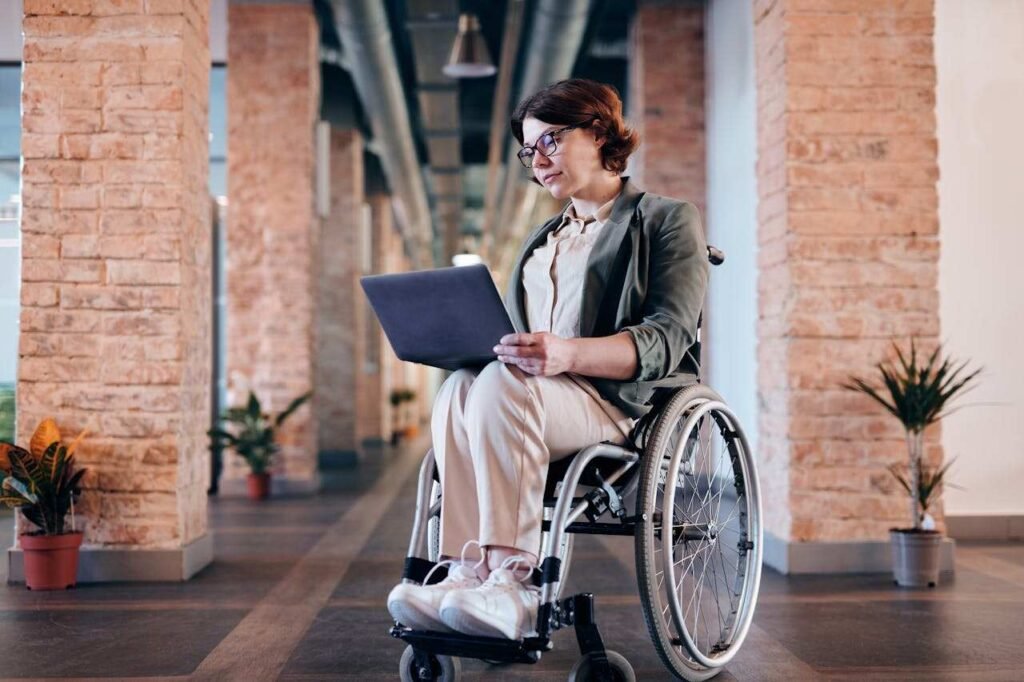Getting a prosthetic hand is not just a medical decision—it’s a life-changing step toward independence and confidence. But for many people in India, especially after the emotional and physical challenges of amputation, the cost of a prosthetic can feel like a heavy burden.
Modern prosthetic hands, especially myoelectric or bionic ones, are designed with advanced technology that offers precision, comfort, and natural movement. However, these devices often come with a high price tag. While the value they bring is unquestionable, paying the entire amount upfront can be difficult for most families.
That’s where EMI and financing options come in. They make it possible to get the right prosthetic hand without waiting years to save up. Instead of one large payment, the total cost can be broken into small, manageable installments—often with low or zero interest.
In this article, we’ll explore every aspect of prosthetic hand financing in India—how EMI works, what medical loans are available, which organizations offer flexible payment plans, and how you can choose the right one based on your needs and income.
Understanding the Real Cost of Prosthetic Hands in India
The Different Price Ranges of Prosthetic Hands
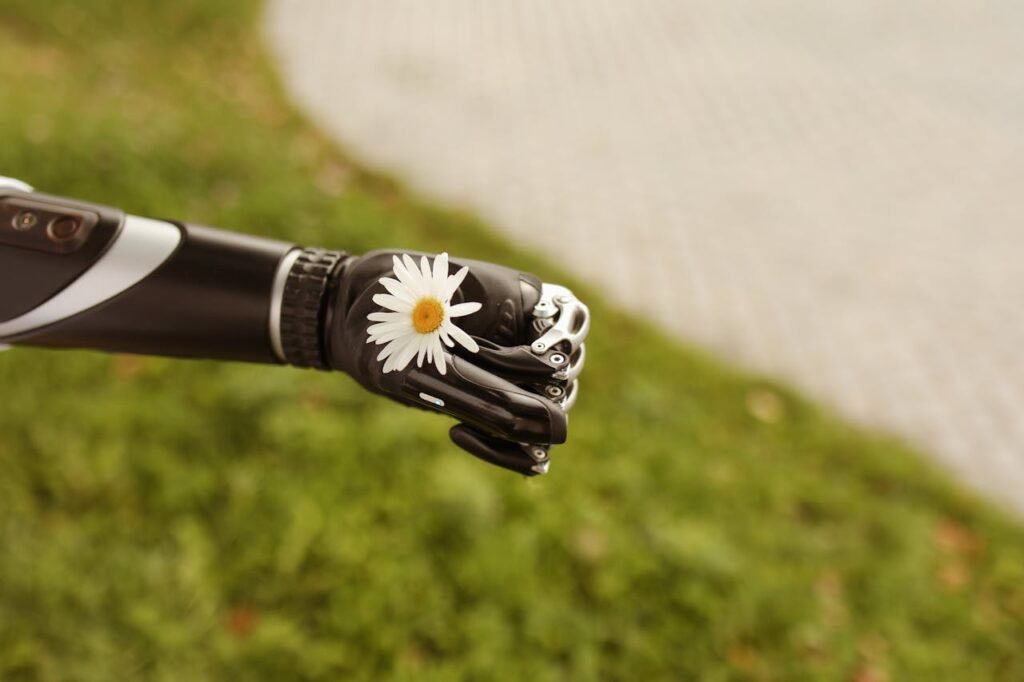
The cost of a prosthetic hand in India depends on technology, materials, and how closely the device replicates natural movement. Mechanical prosthetics, which use simple body motion for control, are the most affordable.
These usually range between ₹30,000 and ₹70,000 and are durable, low-maintenance, and ideal for users who need basic functionality.
More advanced versions, like myoelectric prosthetic hands, are far more sophisticated. They respond to muscle signals from the residual limb, allowing the user to open, close, and grip objects effortlessly. These can cost anywhere from ₹2 lakhs to ₹10 lakhs or more, depending on brand and customization.
Customization and Design Factors
Every prosthetic is unique because every person’s body, lifestyle, and comfort needs are different. Women, for instance, often require lightweight and aesthetic designs that blend naturally with their clothing and activities.
Customization may involve tailored sockets, skin-tone silicone gloves, or advanced grip patterns. While this personalization adds cost, it also ensures better comfort and confidence.
In practical terms, a custom-designed prosthetic might add 10–20% to the total price—but it significantly improves usability and appearance.
Long-Term Maintenance and Servicing
When budgeting for a prosthetic hand, it’s important to consider maintenance. Parts like gloves, batteries, and sensors need occasional replacement.
Routine servicing, socket re-lining, or software calibration may be required every year or two. Over five to seven years, these costs can total ₹30,000 to ₹1 lakh, depending on the model.
Financing options often include maintenance add-ons, letting you pay for servicing through small EMIs instead of sudden out-of-pocket expenses.
Regional Price Variations Across India
The cost of prosthetics can also change based on location. Clinics in metro cities like Delhi, Mumbai, and Bengaluru may charge more than those in smaller towns due to imported materials and advanced testing facilities.
However, several regional prosthetic centers now partner with financing institutions to ensure equitable access across India. So, even if your clinic is in a smaller city, you can still avail of EMI options through national medical lenders.
Comparing Indian and Imported Prosthetics
India now produces many high-quality prosthetic hands locally. Domestic manufacturers like Robobionics have helped bring costs down without compromising performance.
Locally made prosthetics typically cost 30–40% less than imported models while offering similar functionality. For those exploring EMI options, this can make monthly payments far more manageable.
Still, imported models may appeal to users who need specific advanced functions, like multi-grip control or wireless connectivity. Financing helps bridge that affordability gap by making such technology attainable.
Why Upfront Payment Is a Challenge
Most people don’t plan for prosthetic costs in advance—it’s an unexpected medical expense that arises after surgery or trauma.
Paying several lakhs upfront can strain household savings or disrupt other financial priorities like rent, education, or family care.
That’s why medical EMIs and financing options are crucial—they allow users to get their prosthetic when they need it most, not years later.
The Role of Financing in Accessibility
Financing doesn’t just make prosthetics more affordable—it makes them more inclusive. It ensures that cost is never the reason someone has to live without full mobility.
Flexible EMI options enable individuals from different income groups to access the same quality of technology, comfort, and design.
It’s not about lowering quality to match affordability; it’s about creating smarter payment solutions that fit real lives and real budgets.
How EMI and Financing Work for Prosthetic Hands in India
Understanding What EMI Means
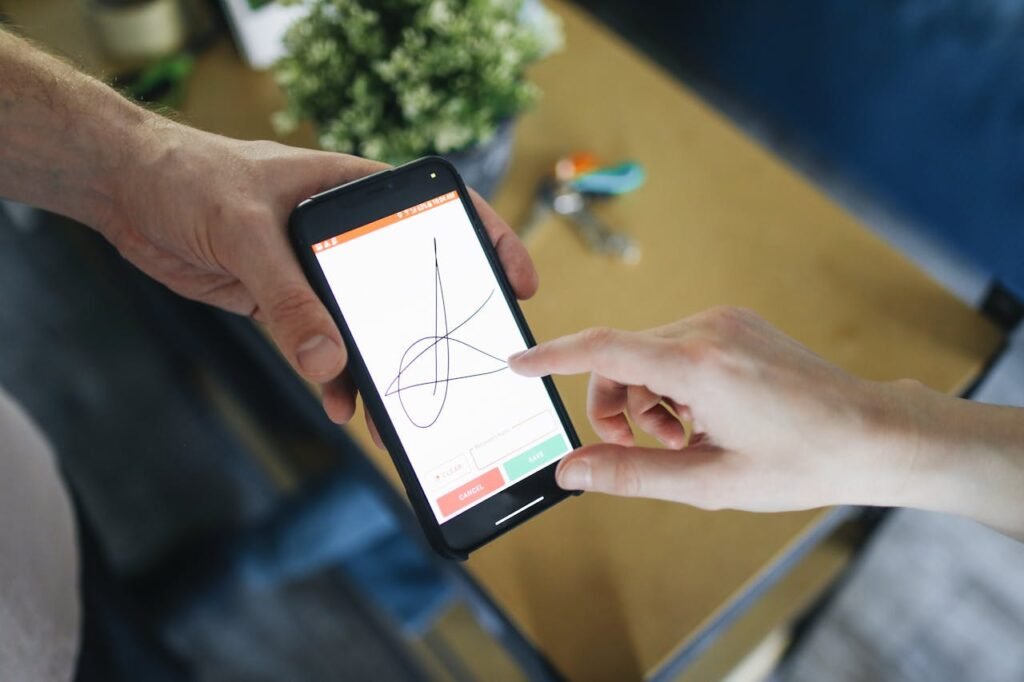
EMI, or Equated Monthly Installment, is a simple concept. It allows you to break down the total cost of a product into smaller, fixed monthly payments.
When it comes to prosthetic hands, this means you can get fitted and start using your device immediately while paying gradually over time.
The EMI amount usually includes the base price divided by the chosen tenure—ranging from three months to three years—along with a small interest rate if applicable.
Why EMI Makes Prosthetics Accessible
For most families, paying ₹2–5 lakhs at once is difficult, especially after medical expenses for surgery, therapy, and recovery. EMI options make this easier by distributing the cost into comfortable parts.
Instead of viewing prosthetic care as an expense, it becomes an investment—one that you can manage alongside your other monthly responsibilities.
This payment flexibility allows people to focus on physical healing and emotional recovery, rather than worrying about finances.
How Financing Differs from Regular EMI
While EMI options are often offered directly by prosthetic providers or banks, medical financing goes a step further.
Financing is a formal loan or credit line specifically designed for healthcare. It can cover not just the prosthetic hand but also fitting, customization, and post-care costs.
Some financing programs even include insurance coverage, ensuring your device is protected in case of accidental damage or loss.
The Role of Medical Loan Providers
Several financial institutions in India specialize in healthcare loans. Companies like Bajaj Finserv, Tata Capital, HDFC Bank, and ICICI Bank now offer medical loans or EMI cards for prosthetic fittings.
These institutions typically partner with clinics and manufacturers, allowing patients to apply directly through the prosthetic center.
The approval process is fast—often within 24 to 48 hours—and requires minimal paperwork such as identification, income proof, and a quotation from your prosthetist.
Zero-Cost EMI Options
Zero-cost EMIs have become popular for medical treatments in India. In these plans, you pay only the product’s actual price divided into equal parts—no added interest.
Many prosthetic manufacturers, including Robobionics, work with financial partners to offer such zero-cost EMI plans.
This approach removes the extra financial strain that comes with interest-based loans, making it ideal for individuals or families already managing other medical expenses.
Short-Term vs Long-Term EMIs
Short-term EMI plans usually last from three to six months. These are ideal for smaller or mechanical prosthetics that cost under ₹1 lakh.
For more advanced prosthetics like myoelectric hands, longer EMI tenures—12, 24, or even 36 months—are available. These let users enjoy advanced technology with smaller, easier payments.
The flexibility to choose the tenure allows each user to balance cost with comfort, depending on their income and financial priorities.
Financing Through Hospitals and Clinics
Many hospitals and rehabilitation centers have started offering EMI directly through tie-ups with finance companies.
Once your doctor prescribes a prosthetic hand, the hospital or prosthetic provider can connect you to their partnered lender. The entire process, from quotation to disbursal, happens on-site.
This setup simplifies things for patients, as they don’t have to approach banks separately or handle multiple forms.
Documentation and Application Process
Applying for EMI or financing is straightforward. You’ll need to provide your Aadhaar card, PAN card, income proof (such as salary slips or bank statements), and a cost estimate for the prosthetic hand.
In some cases, co-applicants like family members can help you qualify by submitting their income proof.
Once approved, you sign an agreement with the lender or provider, and the payment is made directly to the prosthetic manufacturer or clinic. You then start repaying the amount monthly through auto-debit or online payment.
Financing for Women and Special Schemes
Some financial programs offer exclusive EMI schemes for women, especially those supported by government or NGO-backed initiatives.
These may include lower interest rates, delayed first payments, or subsidies under specific empowerment programs.
Banks like State Bank of India and private lenders often collaborate with women-focused organizations to make healthcare financing more equitable and affordable.
This is particularly important in rural and semi-urban areas, where women often hesitate to seek prosthetic care due to financial dependence or limited awareness.
Customized Payment Schedules
Some prosthetic centers offer flexible installment schedules beyond fixed EMI structures.
If your income fluctuates—say, you are self-employed or running a small business—you can choose seasonal or stepped EMIs. This means smaller payments initially that gradually increase as your financial situation improves.
Such personalization ensures that no one is excluded from rehabilitation due to rigid payment terms.
Maintenance and Upgrade Financing
As prosthetic technology evolves, users may want to upgrade or replace components over time. Many financing institutions now include upgrade clauses, allowing you to take a new loan to replace your older model.
This makes it possible to switch to lighter, more advanced, or battery-efficient prosthetics without paying the full price again upfront.
Maintenance packages can also be added to your EMI, ensuring that servicing, battery replacements, or cosmetic glove renewals are covered throughout the tenure.
Collaboration Between Clinics and Lenders
Reputed prosthetic providers like Robobionics often act as facilitators between users and finance companies. They help users choose the right EMI plan, submit paperwork, and ensure the prosthetic is delivered quickly after approval.
This integrated approach reduces waiting time. Instead of weeks, users can get their prosthetic hand within days after financing approval.
It also brings peace of mind because everything—from documentation to payment tracking—is handled transparently under one system.
Why Financing Is Better Than Waiting
Delaying prosthetic fitting due to cost often leads to other problems. The longer the gap between amputation and prosthetic use, the harder it becomes for muscles and nerves to adjust.
Financing allows early intervention, which improves adaptation and long-term comfort. It lets users start training and rehabilitation at the ideal time for recovery.
In short, EMI options don’t just ease financial pressure—they help you heal better, faster, and with more confidence.
Types of EMI and Loan Options Available for Prosthetic Hands in India
Bank-Based Medical Loans
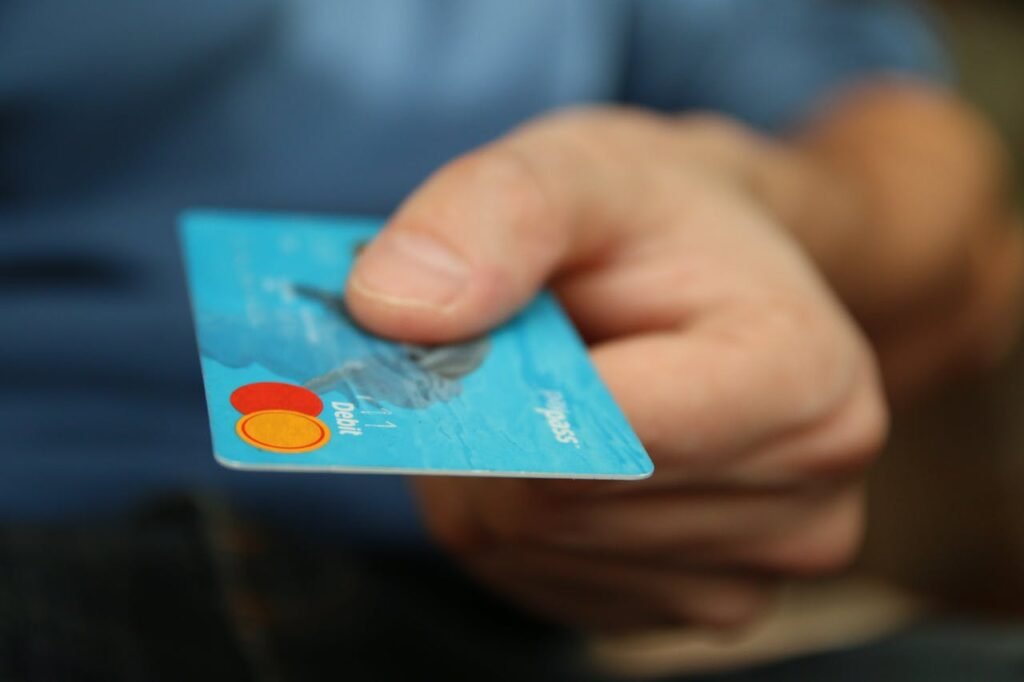
Several major banks in India now offer medical loans that can be used for prosthetic fittings. These loans are categorized under health or personal loans and are designed to cover all types of treatment-related costs.
Banks such as HDFC, ICICI, Axis, and State Bank of India have specialized medical financing divisions. They typically offer quick approvals, flexible tenure, and competitive interest rates ranging from 9% to 15% per year.
Once approved, the loan amount is transferred directly to the prosthetic provider or the user’s account, and repayment starts within one or two months.
For salaried individuals, approval is straightforward with payslips and bank statements. For self-employed applicants, income tax returns and business proof may be needed.
Non-Banking Financial Companies (NBFCs)
Non-banking financial companies have become a major source of medical financing in recent years.
Organizations like Bajaj Finserv, Tata Capital, and Hero FinCorp provide specialized healthcare loans with minimal paperwork and quick online approvals.
They often offer zero-cost EMIs for prosthetic users through partnerships with medical equipment providers like Robobionics. These plans allow the cost to be divided evenly without extra charges, provided payments are made on time.
NBFCs are known for being flexible—they approve loans based on digital documentation and offer instant eligibility checks, making them ideal for those who want to avoid the formalities of traditional banks.
In-House EMI Programs from Prosthetic Providers
Some prosthetic manufacturers and clinics now offer their own financing programs.
At Robobionics, for example, patients can access in-house EMI plans tailored to their budget and treatment type. These are simpler than loans, as approval is done internally and linked directly to your treatment schedule.
In-house EMIs can cover everything from prosthetic customization to aftercare. Since the provider handles both the product and payment, the entire process stays transparent and convenient.
Credit Card EMI Conversions
Another easy way to finance your prosthetic is through your credit card.
Most banks allow you to convert large medical expenses into EMIs directly through your credit card provider. Depending on your limit, you can split payments into 3-, 6-, 9-, or 12-month tenures.
This method is quick because approval is instant—no documentation or separate loan process is needed. However, interest rates may be slightly higher than those offered by medical lenders.
For users who already have a stable income and strong credit history, this is often the fastest option.
Government and Public Sector Loan Options
Some public sector banks offer special medical loan products under welfare initiatives. For instance, Canara Bank and Bank of Baroda provide loans under social responsibility programs to fund rehabilitation aids for people with disabilities.
Interest rates for these loans are often lower than private lenders, and repayment terms are flexible for low-income applicants.
Women may also benefit from interest subsidies under women’s welfare or empowerment schemes that promote healthcare access.
Microfinance Institutions and Rural Programs
In rural India, microfinance institutions (MFIs) and cooperative societies are increasingly helping patients finance prosthetic hands.
These programs are especially helpful for women who lack formal banking access but are part of local self-help groups. The approval process is community-based, requiring fewer formal documents.
Repayments are made weekly or monthly in small, manageable amounts. In some cases, NGOs or local government health departments help subsidize the interest cost.
This model ensures even rural and small-town users can afford modern prosthetics without large upfront payments.
Employer-Linked Medical Advances
Some companies and government organizations offer medical advances or loans to employees for health-related needs.
If you work in an office, hospital, or government department, you can approach your HR department for details. Many companies allow employees to deduct the cost of medical devices, including prosthetics, through salary-linked EMI deductions.
This approach keeps repayment simple and interest-free in many cases. It’s especially useful for working women who want a discreet and direct way to finance their prosthetic.
Insurance-Linked Financing
If you already have partial prosthetic coverage through your insurance policy, some financial partners allow you to combine insurance payouts with EMI financing.
For instance, you can use your insurance to pay 40–50% of the cost and cover the remaining amount through monthly installments.
This hybrid approach works well when your prosthetic costs exceed your policy’s sub-limit or if your insurer delays full reimbursement.
NGO Partnerships and Charitable Programs
Several non-profit organizations in India have tie-ups with prosthetic manufacturers and lenders to support low-income users.
These partnerships often provide subsidized EMI options or zero-interest loans. NGOs such as Rotary, Lions Clubs, and regional disability support groups sometimes sponsor part of the amount, making repayment easier.
They also help applicants with documentation, counseling, and awareness—especially in areas where access to banking is limited.
Combining Different Financing Channels
You don’t always need to depend on one financing method. Many patients combine small portions from different sources—like an insurance claim, a short-term personal loan, and a credit card EMI—to complete their prosthetic purchase.
This strategy ensures flexibility without putting pressure on a single repayment schedule. Your prosthetic provider can help you calculate an ideal mix that minimizes interest and spreads costs evenly.
Evaluating EMI Tenure and Interest
Choosing the right EMI plan means balancing monthly affordability with overall interest cost.
Shorter tenures (6–12 months) reduce the total interest but require higher monthly payments. Longer tenures (24–36 months) lower your monthly burden but may slightly increase total payment due to interest.
Some banks offer an “interest holiday,” allowing you to start repayment after one or two months—helpful if you need time to recover or resume work after surgery.
A good prosthetic provider will always guide you through these options, ensuring that your financial decision supports—not hinders—your recovery journey.
Importance of Comparing Offers
Before finalizing a financing plan, it’s worth comparing a few lenders. Some may charge processing fees or penalties for prepayment, while others allow early closure without charges.
Even a small difference in interest rates can save you thousands of rupees over the loan period.
Online EMI calculators provided by most banks can help you estimate monthly payments before committing. This ensures transparency and confidence before you sign.
How to Choose the Right Financing Plan for Your Prosthetic Hand
Matching the Plan to Your Financial Situation
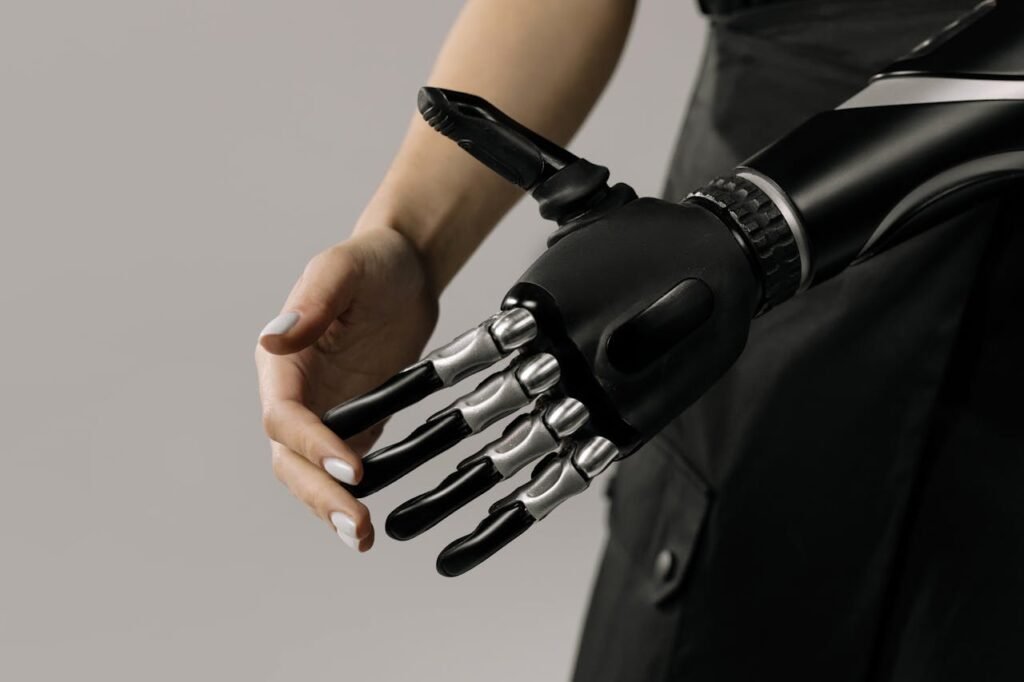
Choosing the right EMI or financing option for your prosthetic hand begins with understanding your income pattern and expenses.
If you have a fixed monthly salary, a traditional EMI plan with consistent monthly payments might work best. It allows predictability—you know exactly how much you owe every month.
For self-employed individuals or small business owners, income may fluctuate. In such cases, flexible EMI options, where payments can be smaller at the start and grow over time, are more practical.
Your goal should be to find a plan that keeps you financially comfortable while ensuring timely payment. The prosthetic hand should improve your daily life, not become a financial strain.
Considering Interest Rates Carefully
Interest rates vary between lenders. Private banks may offer rates between 9% and 15%, while NBFCs might range from 12% to 18%. Zero-cost EMI options are the most desirable, but they’re usually available only through specific partnerships between clinics and finance providers.
Before committing, always confirm whether the “zero-cost” plan has any hidden processing fees or upfront charges.
A slightly longer tenure with a fair rate can sometimes be better than a short-term plan that strains your monthly budget.
The key is to look at total repayment cost—not just the monthly amount.
Knowing What’s Included in the EMI
It’s common for prosthetic financing to include more than just the hand itself. Some plans cover fitting, adjustments, aftercare, and servicing. Others may even include accessories like silicone gloves or cosmetic finishing.
Ask for a detailed breakdown before signing the agreement. Understanding what’s included prevents confusion later when you go for maintenance or training.
If your prosthetic provider offers optional add-ons like extended warranties or servicing packages, check if they can be bundled into the EMI. That way, all essential costs are covered from the start.
Tenure and Total Repayment Period
The tenure you choose defines both your comfort and total expense. Shorter terms mean fewer months of payment but higher EMIs; longer terms ease monthly pressure but may slightly increase overall cost due to interest.
If your financial situation is stable, shorter terms are ideal to finish payments sooner. But if you’re recovering or adapting to a new work routine, a longer tenure gives breathing space.
It’s often wiser to start with an affordable monthly amount rather than pushing yourself for an early closure. Once your finances improve, you can prepay or close the loan early in most cases.
Prepayment and Flexibility Options
Flexibility matters in financing. Some plans allow early closure without penalty, while others charge a small fee for prepayment.
If you expect to receive insurance reimbursements, bonuses, or any lump-sum payments later, look for a plan that allows prepayment.
Closing the loan early saves interest and helps you become debt-free faster. Many banks even offer part-payment options, letting you reduce the remaining EMI balance anytime.
The Role of Credit Score
A good credit score can help you secure lower interest rates and easier approvals.
If your score is above 700, lenders are more likely to offer favorable terms. If it’s lower, don’t worry—NBFCs and in-house EMI programs are often more flexible and consider your overall circumstances rather than just credit history.
If your prosthetic provider partners directly with lenders, they may even help negotiate approvals based on medical urgency or rehabilitation need.
Comparing Providers Before You Decide
Different prosthetic clinics offer different financing options. One may partner with a specific bank, while another works with multiple NBFCs.
It’s worth comparing not just the interest rates but also service quality. A provider who handles all paperwork and ensures smooth claim processing saves you stress and time.
Ask about approval speed, EMI processing time, and post-sale support. Fast delivery with transparent billing should always be your priority.
Asking the Right Questions
Before finalizing your financing plan, ask questions like:
- What exactly does the EMI cover?
- Is there an advance payment or processing fee?
- What happens if I miss one installment?
- Can I make additional payments to close early?
- Does the plan include servicing or upgrades?
These small details can prevent confusion and ensure that your financing experience remains as smooth as your prosthetic journey itself.
Taking Advantage of Partnerships
Top prosthetic manufacturers often collaborate with finance institutions to make rehabilitation affordable.
Robobionics, for example, partners with trusted healthcare lenders and NBFCs to offer simplified EMI options. These partnerships mean instant approvals, zero hidden charges, and flexible tenures tailored for users across income levels.
When choosing your provider, confirm if such partnerships exist—it can save you significant money and time.
Balancing Functionality and Budget
You may not always need the most advanced prosthetic model right away. Sometimes, starting with a simpler version and upgrading later is more practical.
A lightweight mechanical or semi-myoelectric prosthetic might serve your immediate needs perfectly while keeping costs lower.
Once you’ve adjusted to your new routine, you can explore more advanced prosthetics with higher grip precision or electronic controls. Financing can make these upgrades affordable later.
Thinking Long-Term
Your prosthetic is not a one-time expense—it’s part of an ongoing journey. Over time, you may need servicing, refitting, or replacement. When selecting a financing plan, consider the long-term relationship with your provider.
A good prosthetic center offers lifetime support, easy access to spare parts, and continued care even after your payments are complete.
Long-term partnership ensures that your prosthetic hand remains comfortable, durable, and reliable through every stage of your life.
Emotional and Practical Confidence
Financing is not just about money—it’s about dignity and choice. When you can access the best technology without delay, you regain confidence faster.
You don’t have to compromise on function or design due to immediate financial limits. You can move forward knowing that your recovery is backed by a plan built around your needs.
Every monthly payment becomes a step toward freedom, mobility, and independence.
Financial Literacy and Awareness
One of the biggest barriers to rehabilitation in India isn’t just cost—it’s awareness. Many users don’t know that EMI and medical financing options even exist.
Healthcare literacy programs and patient counseling can bridge this gap. When prosthetic providers educate users about these options, it changes outcomes dramatically.
At Robobionics, every consultation includes a financial discussion. Users learn what options fit their situation best so they can focus on getting back to their daily life without unnecessary delay.
The Role of Family in Decision-Making
In most Indian households, health decisions involve the family. Choosing a financing plan is no different. Discuss the EMI plan openly with your family members—they can help assess affordability and share the responsibility if needed.
Many women, for instance, benefit from having a family co-applicant, which can improve loan eligibility and lower interest rates.
Making the decision together ensures peace of mind for everyone involved.
Supporting Women Through Financial Inclusion
Women in India often face unique challenges in accessing healthcare finance. Many rely on others for financial decisions or lack formal income proof.
To address this, several programs now offer women-specific EMI plans or microloans for medical devices. These initiatives promote autonomy by recognizing women not just as dependents but as independent healthcare consumers.
Robobionics actively works with partners to ensure that women can access prosthetic hands easily—without complicated paperwork or bias.
Future of Financing in Prosthetic Care
The financing landscape for prosthetics in India is evolving rapidly. Digital approval systems, healthcare credit cards, and fintech platforms are making medical payments more seamless.
Soon, AI-based eligibility systems will allow instant approvals based on your profile and medical need. With these advancements, no one will have to delay their prosthetic journey because of finances.
The goal is to create a future where quality prosthetics are as accessible as any other essential healthcare service.
Final Thoughts
Financing a prosthetic hand is not just about paying in parts—it’s about making recovery possible when it matters most.
Whether you choose a bank loan, an NBFC EMI, or an in-house payment plan, the goal is the same: regaining independence without financial anxiety.
With today’s growing range of EMI and financing options, no one should have to postpone their recovery or settle for less than what they need.
At Robobionics, we believe that mobility and dignity should never depend on affordability—they should be available to everyone, at every stage of life.



